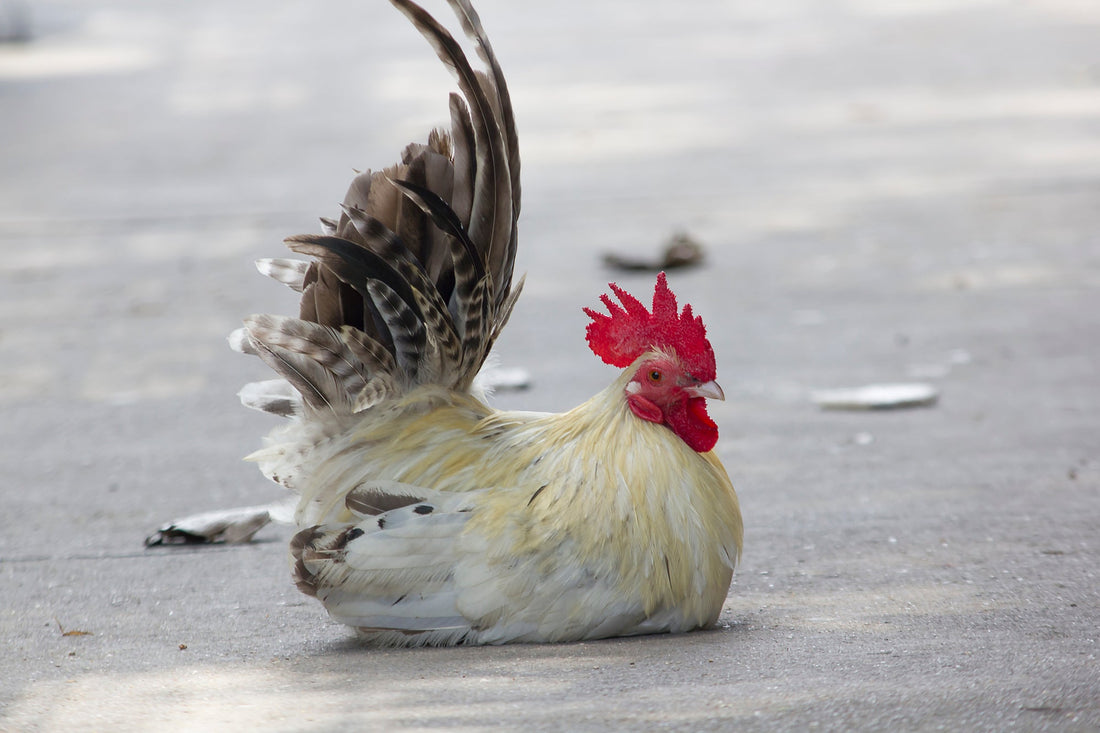Keeping chickens healthy and happy involves more than just providing food and shelter. Unfortunately, broken bones can happen to chickens, whether due to accidents, falls, or even rough handling. However, with proper care and preventative measures, you can minimize the risk of broken bones and effectively manage them if they occur. In this guide, we'll explore essential tips for preventing and managing broken bones in chickens, ensuring your feathered friends remain strong and resilient.
- Understanding the Risks: Common Causes of Broken Bones
Before diving into prevention and management strategies, it's crucial to understand the common causes of broken bones in chickens. Accidents such as falls from perches or flying into objects can result in fractures, especially in young or inexperienced birds. Predators can also cause injuries to chickens during attacks, leading to broken bones. Additionally, rough handling or improper catching techniques can inadvertently cause harm to chickens, resulting in fractures. By identifying potential risks and hazards, you can take proactive measures to minimize the likelihood of broken bones occurring in your flock.
- Creating a Safe Environment: Minimizing Hazards
Prevention is key when it comes to avoiding broken bones in chickens. Creating a safe and secure environment for your flock is essential for minimizing hazards and reducing the risk of accidents. Ensure that the chicken coop and run are free from clutter, sharp objects, and potential obstacles that could cause falls or collisions. Regularly inspect the coop and surrounding area for any signs of wear or damage, such as loose flooring or exposed wires, and promptly address any issues to maintain a safe environment for your chickens. Providing adequate roosting space and secure perches can also help prevent falls and injuries, especially during the night when chickens are roosting.
- Handling with Care: Gentle Techniques
Proper handling techniques are crucial for preventing injuries, including broken bones, in chickens. When handling chickens, always approach them calmly and avoid sudden movements or loud noises that could startle them. Use both hands to support the bird securely, avoiding excessive pressure or squeezing that could cause harm. When catching chickens for transport or examination, use gentle and deliberate movements to avoid causing stress or injury. Avoid picking up chickens by their legs or wings, as this can result in fractures or dislocations. By handling chickens with care and respect, you can minimize the risk of accidents and injuries.
- Nutritional Support: Strengthening Bones
Ensuring that your chickens receive proper nutrition is essential for maintaining strong and healthy bones. Provide a balanced diet that includes high-quality poultry feed supplemented with calcium and other essential nutrients. Calcium is particularly important for bone health in chickens, so consider offering additional sources such as crushed oyster shells or eggshells for calcium supplementation. Monitor your chickens' diet and adjust accordingly based on their age, breed, and individual needs. A well-balanced diet will support overall bone health and help reduce the risk of fractures in your flock.
- First Aid: Immediate Response
In the unfortunate event that a chicken does experience a broken bone, prompt first aid is essential for minimizing pain and preventing further injury. Carefully examine the bird for any signs of distress or injury, such as limping, swelling, or deformity. Gently isolate the injured chicken from the rest of the flock to prevent further injury or harassment. Provide supportive care such as splinting or bandaging the affected limb to immobilize the fracture and reduce pain. Avoid administering pain medications or treatments without consulting a veterinarian, as some medications can be harmful to chickens.
- Veterinary Care: Professional Assistance
Seeking veterinary care is crucial for chickens with broken bones, as they may require specialized treatment or surgery to repair the fracture. Consult with a poultry veterinarian or avian specialist who can assess the extent of the injury and recommend appropriate treatment options. Depending on the severity of the fracture, treatment may involve casting, splinting, or surgical intervention to realign and stabilize the bone. Follow your veterinarian's instructions carefully and provide any necessary supportive care or medications as prescribed. With proper veterinary care, many chickens can recover from broken bones and regain full mobility.
- Rehabilitation: Supportive Care
After receiving veterinary treatment, chickens with broken bones may require ongoing rehabilitation and supportive care to aid in their recovery. Provide a quiet and comfortable environment for the injured bird to rest and recuperate, minimizing stress and activity levels. Monitor the chicken closely for any signs of improvement or complications, such as infection or delayed healing. Gentle physical therapy exercises may be beneficial for promoting circulation and mobility in the affected limb, but be cautious not to overstress or further injure the bird. With patience and supportive care, many chickens can make a full recovery from broken bones.
- Prevention Through Genetics: Selective Breeding
Long-term prevention of broken bones in chickens can be achieved through selective breeding for strong and resilient bone structure. Consider selecting breeding stock with robust skeletal traits and avoiding birds with known susceptibility to fractures or skeletal disorders. Breeding for improved bone health and structural integrity can help reduce the incidence of broken bones in future generations of chickens. Additionally, providing adequate space and environmental enrichment for chickens to engage in natural behaviors such as foraging and dust bathing can help promote overall bone health and resilience.
Protecting Your Flock's Well-being
Preventing and managing broken bones in chickens requires a proactive approach that prioritizes safety, nutrition, and veterinary care. By understanding the common causes of fractures and implementing preventative measures such as creating a safe environment, handling chickens with care, and providing proper nutrition, you can minimize the risk of injuries in your flock. In the event of a broken bone, prompt first aid, veterinary care, and supportive rehabilitation can help chickens recover and regain their mobility. With careful attention and proactive management, you can keep your flock strong, healthy, and resilient for years to come.

